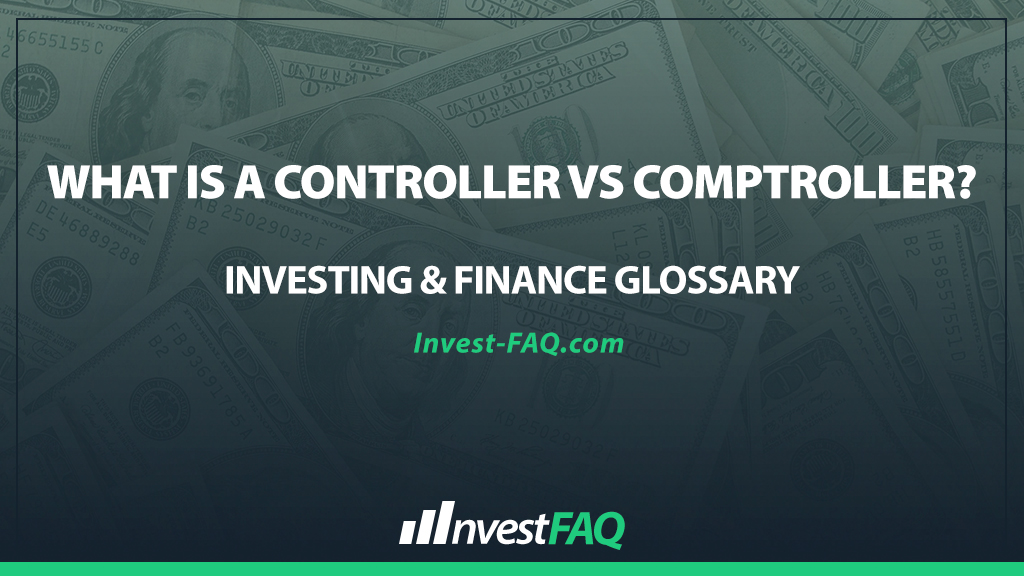
Controller vs Comptroller
Contents
The terms “controller” and “comptroller” often create confusion, but they refer to roles with similar duties: overseeing the accounting operations and financial reporting of an organization. The primary distinction lies in the sectors they serve, with “controller” commonly used in the private sector and “comptroller” in the public sector or governmental entities.
In the private sector, a controller is the chief accounting officer, responsible for financial and managerial accounting functions. They ensure the company’s financial statements are accurate, oversee budgeting, and manage internal controls.
A comptroller, on the other hand, performs similar tasks within government agencies or non-profit organizations, focusing on budget management, financial reporting, and ensuring public funds are used efficiently.
Example of a Controller vs Comptroller
Consider a manufacturing company, “XYZ Corp.,” where the controller oversees the preparation of the quarterly financial report. This involves ensuring all transactions are accurately recorded, financial statements are prepared in accordance with GAAP, and analyzing variances between actual and budgeted figures.
In the XYZ Corp. example, the controller plays a crucial role in financial oversight by managing the accounting staff, coordinating with external auditors, and providing the management team with reliable financial data to make informed decisions. The process involves detailed reviews of ledger entries, reconciliation of accounts, and preparation of reports that summarize the company’s financial status and operational efficiency.
Types and Uses in Business Scenarios
Controllers in private companies often deal with financial analysis, strategic planning, and internal financial management, aiming to maximize profit and efficiency.
Comptrollers in public sectors focus on adherence to budgets, compliance with financial regulations, and ensuring the ethical use of public funds, with a strong emphasis on transparency and accountability.
Both roles may also involve managing investments, risk assessment, and financial forecasting to support their respective organization’s goals.
Significance for Investing & Finance
The significance of the controller and comptroller positions in accounting cannot be overstated. They ensure the integrity of financial reporting, which is crucial for maintaining investor confidence in the private sector and public trust in the public sector.
Moreover, their work supports strategic planning and compliance with financial regulations, contributing to the overall health and sustainability of the organization they serve.
In summary, while controllers and comptrollers share similar responsibilities in overseeing financial functions, the context of their work differs significantly.
Controllers focus on the financial management of private sector companies, whereas comptrollers serve in a similar capacity within public agencies or non-profit organizations. Both positions are pivotal in ensuring accurate financial reporting, compliance with laws and standards, and effective financial stewardship
FAQ
What is the main difference between a controller and a comptroller?
The main difference lies in their sectors of employment: a controller typically works in the private sector, focusing on internal financial management, while a comptroller works in the public sector or governmental agencies, managing and ensuring the integrity of public funds.
Can a controller and a comptroller perform the same tasks?
Yes, controllers and comptrollers can perform similar financial tasks, such as overseeing accounting operations and preparing financial reports, but their responsibilities are tailored to the needs of their respective private or public sector organizations.
Why is the role of a comptroller important in government agencies?
The comptroller’s role is crucial in government agencies for ensuring public funds are used efficiently and ethically, maintaining budget compliance, and upholding transparency and accountability in financial reporting.
How does the work environment of a controller differ from that of a comptroller?
The work environment of a controller typically focuses on profit maximization and financial efficiency within a private company, whereas a comptroller’s environment emphasizes regulatory compliance, budget management, and the ethical use of funds in a public or governmental setting.
